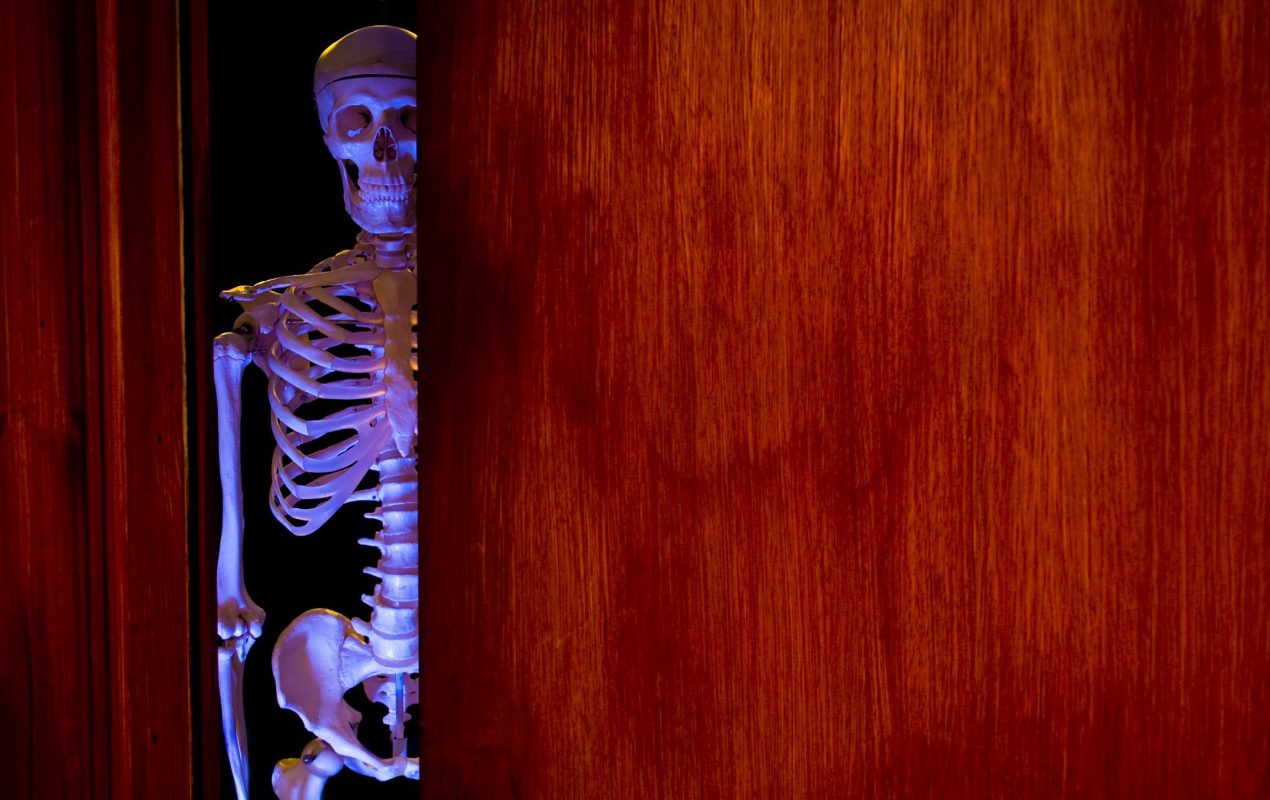Transphobes Are Becoming Armchair Archaeologists To Justify Their Bigotry
I've got a bone to pick.

Unable to keep up with the science of gender and sex in an honest way, transphobic people of all ilk feign an interest in human history to support their bigoted views. One argument that I keep seeing, with minimal pushback, is the notion that the “choice” of gender is something that only lasts when you’re alive. Oftentimes, trans-exclusionary radical feminists (or TERFs) will point to a picture of skeletons and say that, when the dust settles, the sex assigned at birth will be the sex assigned at death.
This is actually true, but not in a way that supports their transphobic theories. The experts assigning these markers of gender are archaeologists, and they work in the field of anthropology. This is a really, really recent field—less than 200 years old. All four main fields that make up anthropology (including archaeology) were shaped by the sensibilities of the time, including the idea of objectivity. The ideas about objectivity in the 1800s are not today’s standards, so the field had to (for lack of a better word) evolve. Like other fields of study using the scientific method, archaeologists don’t really get to make a claim and have it automatically accepted as fact. It has to be supported by evidence.
In the case of identifying remains, the evidence is a combination of historical documents, the objects people were buried with, the place they were buried, and many other things—including bones. Archaeologists don’t just dig up bones and say, “Congratulations, it’s a girl.” I mean, they might do this on an expedition, or dig, because humor lightens up the work, but I digress. They take notes, form hypotheses, and test (and re-test) that information.
They can apply a sex to skeletal remains, but their interpretations may be incorrect, missing information, or completely erase intersex people. Additionally, there are massive limitations to applying gender or sexuality without a fuller picture. Archaeologists take into consideration the culture of the past and how to write about it for a contemporary reader or peer, but the fact that their assumptions may not match the lived reality of the original person only shows how cisgender, heteronormative bias (unconscious or no) distorts science to support bigoted views.
Bones don’t speak, people do
There have been so many high-profile misattributions of sex, gender, and sexuality over the years that it’s basically a meme at this point, even outside of antiquities studies. Skeletons have been found and called “lovers” (with implied heteronormativity) in formal documents or public information (including the press), only for it to later be discovered that they’re same-sex couples, or that one of them would be considered trans by current standards if they were alive today. In some instances, queerness has been projected onto these discoveries, but in most cases, heterosexuality is (incorrectly) projected as a matter-of-fact or to uphold a dominant belief.
Emphasis on “present standards” because, like the field itself, these terms are new, and the idea of cis-heteronormativity as the only acceptable form of gender and sexual expression is a small part of human history. It’s been pretty clearly established that same-sex couples have existed across the world throughout history, but trans and trans-adjacent experiences are complicated to study. Before going back into the bones, it’s important to note that translation errors have been made (by choice) in recorded history, typically because certain words don’t exist in one language or may not have a one-to-one comparison.
Transness (in popular culture, not science) is still seen as an aberration, a journey of gender discovery that starts on one end of the gender binary and moves to another. Even people who accept non-binary genders fail to see how gender isn’t a static place people “reach.” And this is without accounting for intersex people and how they experience gender. Non-binary expressions of gender may not be as apparent to our culture because they aren’t always recognized as being in a state of “change” or seen as exhibiting movement, like the prefix “trans” suggests. PBS’ Independent Lens actually has this great worldwide map that serves as an introduction to over 30 cultures with non-cisgender identities. Even conservatives’ ever-shifting concept of “The West” has recorded instances of third genders in antiquity (and today.)
With the rare exception of people like Universal Public Friend, most trans people (again, using contemporary terms) throughout U.S. history have been forced to hide or detransition, and that’s only just starting to change. The concerted effort to marginalize transgender people has distorted the evidence we have to work with, which is exactly what bigots want: to erase trans people from existence. It’s not the win transphobes think it is to point out just how successful their oppression of trans people has been—especially when these same metrics and tactics have been used to impose ever-shifting gender and sex standards on women and people of color in the past and present.
(featured image: SamBurt)
—The Mary Sue has a strict comment policy that forbids, but is not limited to, personal insults toward anyone, hate speech, and trolling.—
Have a tip we should know? tips@themarysue.com